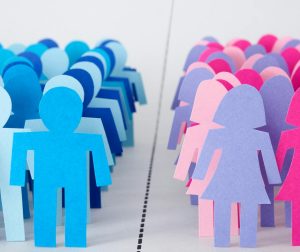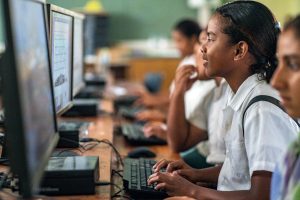Education
The United Nations (UN) defines ‘youth’ as people between 15 and 24 years of age. Nevertheless, each country has its national border. The age range of Pakistan’s youth is 15 to 29.
According to the National Human Development report published by the United Nations Development Program (UNDP), Pakistan has the highest recorded proportion of young individuals. More than 64 percent of the country’s population is under 30, and 29 percent is between 15 and 29.
Pakistan has one of the lowest literacy rates in the world and the second-largest population of children not in school (22.8 million) after Nigeria. Article 25-A of the Pakistani Constitution states, “The State shall provide free and compulsory education to all children between the ages of five and sixteen by the law.” The current literacy rate in Pakistan is 62,3, which indicates that an estimated 60 million Pakistanis are illiterate. Punjab had the highest provincial literacy rate at 58%, followed by Sindh at 55%, NWFP at 47%, and Balochistan at 42%.
Pakistan is a signatory to the Education For All (EFA) World Declaration. Since the EFA commitment was made in 2000, considerable time has passed, but Pakistan still needs to attain the universal literacy goals outlined in this international commitment.
The National Commission for Human Development (NCHD) is an autonomous agency of the Ministry of Federal Education and Professional Training tasked with supporting human development initiatives in Pakistan, particularly in adult literacy. NCHD, as the National Literacy Lead Agency, has been promoting literacy in Pakistan for the past seventeen years.
The National Youth Policy has also addressed the issue of providing and facilitating education and youth literacy programs for those who did not receive a formal education as children. In addition, the National Youth Development Framework (NYDF) was created with the 3Es: education, employment, and engagement. The government has designed a comprehensive “Prime Minister’s Kamyab Jawan Program” program based on these three elements. Through this initiative, the government has opened the doors to socioeconomic empowerment for young people.
In 2020, the Higher Education Commission of Pakistan will establish a central agency to enhance the caliber of undergraduate degrees. In this context, Youth Development Centers (YDCs) would be established in the leading public universities, where a single office would provide services for students with Education, Employment, and Engagement divisions.
CREDP believes that youth urgently need improved access to high-quality education in both the academic and vocational fields. In this way, they will acquire the foundational knowledge and skills to become contributing members of society. Otherwise, young people’s access to the marketplace and the development of their skills and potential are impacted by the education level they receive. Their ability to take the initiative and contribute to sustainable policy solutions can be hampered by a lack of excellent education, which may also affect their social, environmental, and political awareness.
LATEST
UPDATES

Gender Stereotypes in the Advertisement Industry
In the world of television in Pakistan, advertisements often play a role in reinforcing stereotypes about gender.
LATEST PUBLICATIONS

Gender Stereotypes in the Advertisement Industry
In the world of television in Pakistan, advertisements often play a role in reinforcing stereotypes about gender.
LATEST PUBLICATIONS

The Status of Digital Learning in Pakistan
Pakistan has made slow progress in adopting advanced technological standards, primarily due to significant associated costs.
